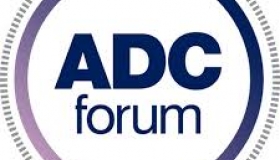Luckin Coffee Slumped Due to Alleged Fraud, How Can Integrity Affect Financing Costs?
Corporate integrity became a talking point because of the alleged fraud of Luckin Coffee.
On 3 April, China Securities Regulatory Commission (the CSRC) pays high attention to the claims of alleged fraud by Luckin Coffee Inc. (Luckin), and strongly condemns the company’s misconduct in fabricating its financial reporting. With zero tolerance towards securities fraud, the CSRC will facilitate related investigations into the fraud allegations according to law and under applicable international framework for regulatory cooperation in the securities market to effectively protect the rights and interests of investors.
On 2 April, Luckin Coffee announced in pre-market trading that the company board of directors has formed a Special Committee to inspect an internal investigation into certain issues during the audit of the consolidated financial statements for the fiscal year of 2019. The information identified at this preliminary stage of the internal investigation indicates that the aggregate sales amount associated with the fabricated transactions from the second to the fourth quarter of 2019 amounts to around RMB2.2 billion. This means the actual Price-to-Sales Ratio of the three quarters is half of what the company previously announced and the market predicted.
As a result, the turnover ratio of Luckin reached 108% with the day of trading, triggering a circuit breaker of shares three times during the normal day session, with Luckin’s shares sinking more than 75%. On 3 April, CAR Inc, the Hong Kong-listed firm which shares the same substantial shareholder as Luckin, tumbled nearly 70% on the opening trading day.
Although Luckin admitted the fraud, which has caused continuous slumps, some media reports said that the concern about Luckin was first raised on 31 January by short-seller Muddy Waters Research, which published a detailed anonymous short-selling report alleging that the company was fabricating financial figures.
Corporate integrity issue arouses public attention as a black swan event. As Professor Bohui Zhang, Executive Associate Dean of the School of Management and Economics,The Chinese University of Hong Kong, Shenzhen indicated in his paper “Does Integrity Affect a Firm’s Fundraising Costs?” that firms with lower integrity or which are located in regions where businesses have less-than-sterling reputations are likely to be charged more by banks when borrowing money and see higher costs in raising funds through equity.
New research shows a firm’s integrity affects how it is seen by sophisticated capital providers, including both banks and investors.
Integrity is widely regarded as a key corporate value in the business world. There is no shortage of literature expounding on the increase in value enjoyed by firms with a strong reputation for integrity. However, new research has found that firms with lower integrity or which are located in regions where businesses have less-than-sterling reputations are likely to be charged more by banks when borrowing money and see higher costs in raising funds through equity.
The study, which was conducted by Prof. Bohui Zhang, Presidential Chair Professor of Finance at the School of Management and Economics at The Chinese University of Hong Kong, Shenzhen in collaboration with Profs. Chen Chen and Ying Xia at Monash University, found a one-standard-deviation-increase in the level of integrity was associated with a decrease of 7.786 basis points compared to the average bank loan spread, and a decrease of 34.560 basis points in the implied cost of capital.
“We find that firms with a lower integrity level or firms located in regions lacking integrity suffer a higher bank loan spread and higher implied cost of equity,” said Prof. Zhang, whose research focuses on Chinese and foreign capital markets, Fintech and the role of information intermediaries on capital markets.
Measuring Firm Integrity
To measure a company’s integrity, the researchers looked at employee comments from Glassdoor, a jobs site that lets people provide anonymous reviews of companies where they have worked before.
To measure a company’s integrity, the researchers looked at employee comments from Glassdoor, a jobs site that lets people provide anonymous reviews of companies where they have worked before.
They also constructed a measure of integrity for a given region using data from Ashley Madison, the online dating website with a seedy reputation for connecting married people seeking extramarital affairs. This is based on the assumption that infidelity, an off-the-job behavior, could be reflected in on-the-job decisions, given that they both reflect a person’s level of integrity. The researchers looked at the frequency and number of company employees accessing the Ashley Madison website as a proxy for the level of integrity of firms in a given location.
This was cross-referenced against the cost of bank loans, using syndicated loan data from the Loan Pricing Corporation, paid by U.S. listed firms between 2002 and 2015. They also constructed implied cost of equity capital data using publicly available financial statements, as well as stock return data and analyst forecasts.
The results of the study, to be published in a report entitled “The Price of Integrity”, confirmed conjecture that firms with a lower level of integrity – as evidence by a higher number of negative employee comments about a company’s integrity on Glassdoor – or firms located in regions lacking integrity suffered a higher bank loan spread and a higher implied cost of equity.
To strengthen the findings, the researchers also conducted two case studies. They first looked at Massachusetts’ Alimony Reform Law of 2011, which set limits on the amount and duration of spousal support upon divorce, on the assumption that it attracted people with lower ethical standards to move to the state. Indeed, researchers found that firms in the area experienced a larger increase in both the cost of bank loans and the implied cost of equity after the law was passed.
They then turned to a search of CEO turnover cases from firms on the S&P Composite 1500 index that came as a result of sudden public exposure of personal indiscretions such as sexual misadventure, substance abuse, violence or public dishonesty like plagiarism or resume fraud. Compared with a control group, it was found that firms saw the cost of bank loans as well as cost of equity fall after their CEOs are forced to step down due to personal indiscretions.
Compensation for Excessive Risks
In explaining the results, Prof. Zhang argued that firms lacking integrity tends to provide more opaque information, and outside investors – and “marginal” investors such as banks through lending – will charge a higher premium to bear the additional risk, resulting in the higher cost to raise funds. Investors are also more likely to charge firms a higher risk premium because lower integrity could lead to excessive risk taking.
“The results based on both future stock returns and cumulative abnormal returns support our conjecture that the stock market discounts stocks from firms with a lower level of integrity,” he added. It also shows that whether a firm has a culture of integrity is considered by both debtholders and equity investors alike.
“Moreover, in terms of the pricing implication, our study provides direct evidence that a firms’ integrity culture affects sophisticated capital providers,” Prof. Zhang said, adding that the study highlighted the importance of integrity culture to businesses, whereas past research has focused on traditional risk factors or financial fundamentals as determinants of capital prices.
“Although prior studies have shown the importance of trust in affecting individuals’ willingness to participate in the stock market, few studies investigate whether and how a firm’s integrity affects the attitudes of marginal equity investors like banks in their investment decisions. Our study fills this void.”
"It is also of importance to regulators and policymakers in trying to put a stop to unethical practices or behaviours in the business world and beyond,” he said.




